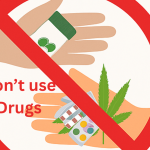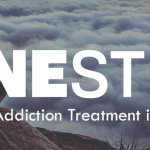Alcohol addiction can be a complex and overwhelming condition, affecting millions of people worldwide. It can cause significant damage to your physical and mental health, relationships, and career. But the good news is, with the right approach and support, it’s possible to reduce your alcohol intake and regain control of your life.
Here are some steps you can take to reduce alcohol addiction:
1. Acknowledge the Problem:
The first step to overcoming any addiction is acknowledging that you have a problem. This can be difficult, but it’s essential to be honest with yourself and others about your struggles.
2. Set Goals:
Once you’ve acknowledged the problem, set realistic and achievable goals for yourself. Start by setting small goals, such as reducing your drinking by one drink per day or limiting your drinking to certain days of the week. As you progress, you can gradually increase your goals.
3. Identify Triggers:
What are the situations, emotions, or people that trigger your urge to drink? Identifying your triggers can help you avoid them or develop coping mechanisms to deal with them in a healthy way.
4. Develop Coping Mechanisms:
When you experience a craving or urge to drink, having healthy coping mechanisms in place can help you resist the temptation. Some helpful coping mechanisms include:
- Exercising: Physical activity releases endorphins, which can improve your mood and reduce stress.
- Practicing relaxation techniques: Techniques like yoga, meditation, and deep breathing can help calm your mind and body.
- Spending time with supportive people: Surround yourself with friends and family who support your recovery efforts.
- Engaging in hobbies and activities you enjoy: Doing things you enjoy can help take your mind off of alcohol and improve your overall well-being.
5. Seek Professional Help:
If you’re struggling to reduce your alcohol intake on your own, don’t hesitate to seek professional help. Therapists, counselors, and addiction specialists can provide you with the support and guidance you need to overcome your addiction.
6. Consider Medication:
In some cases, medication can be helpful in reducing alcohol cravings and withdrawal symptoms. Talk to your doctor about whether medication might be right for you.
7. Join a Support Group:
Connecting with others who understand what you’re going through can be incredibly helpful. Support groups can provide a safe space to share your experiences, receive encouragement, and learn from others who have successfully reduced their alcohol intake.
8. Take Care of Yourself:
It’s important to take care of your physical and mental health. Eating a healthy diet, getting regular exercise, and getting enough sleep can all help you cope with stress and cravings.
9. Be Patient and Don’t Give Up:
Recovery is a journey, not a destination. There will be setbacks along the way, but it’s important to be patient and don’t give up. Remember, every day is a new opportunity to make progress.
Also Read: Stages Of Alcoholism | Signs, Symptoms, And Treatment
Additional Tips:
- Remove alcohol from your home and environment.
- Avoid bars and restaurants where alcohol is served.
- Tell your friends and family about your goals and ask for their support.
- Reward yourself for reaching your goals.
- Celebrate your successes, big and small.
By combining these steps with the specialized support offered at an alcohol addiction treatment in Delhi, individuals can embark on a transformative journey towards lasting recovery and improved well-being.
Also Read: A Guide on How to Choose the Right Place for Alcohol or Drug Rehab











